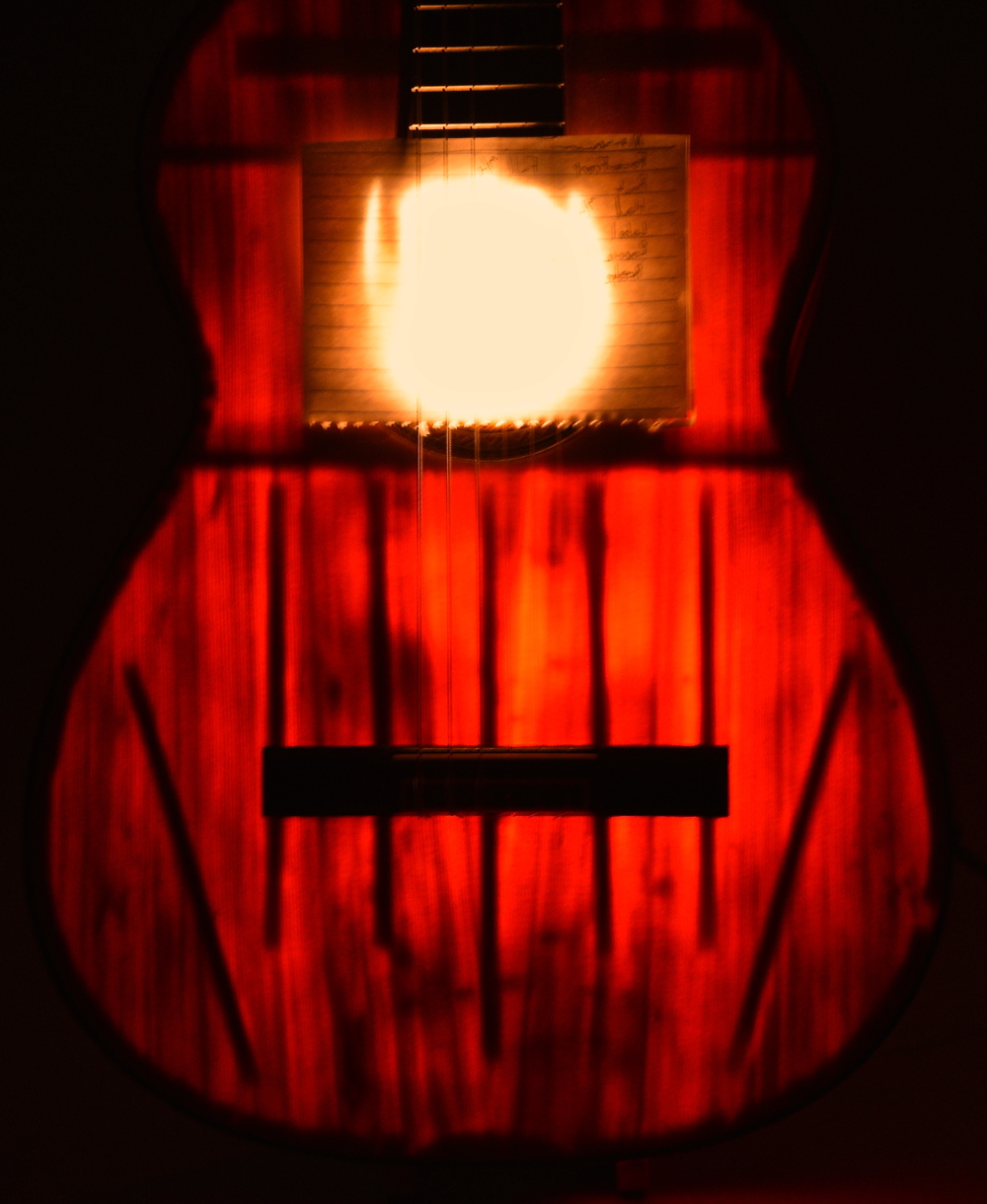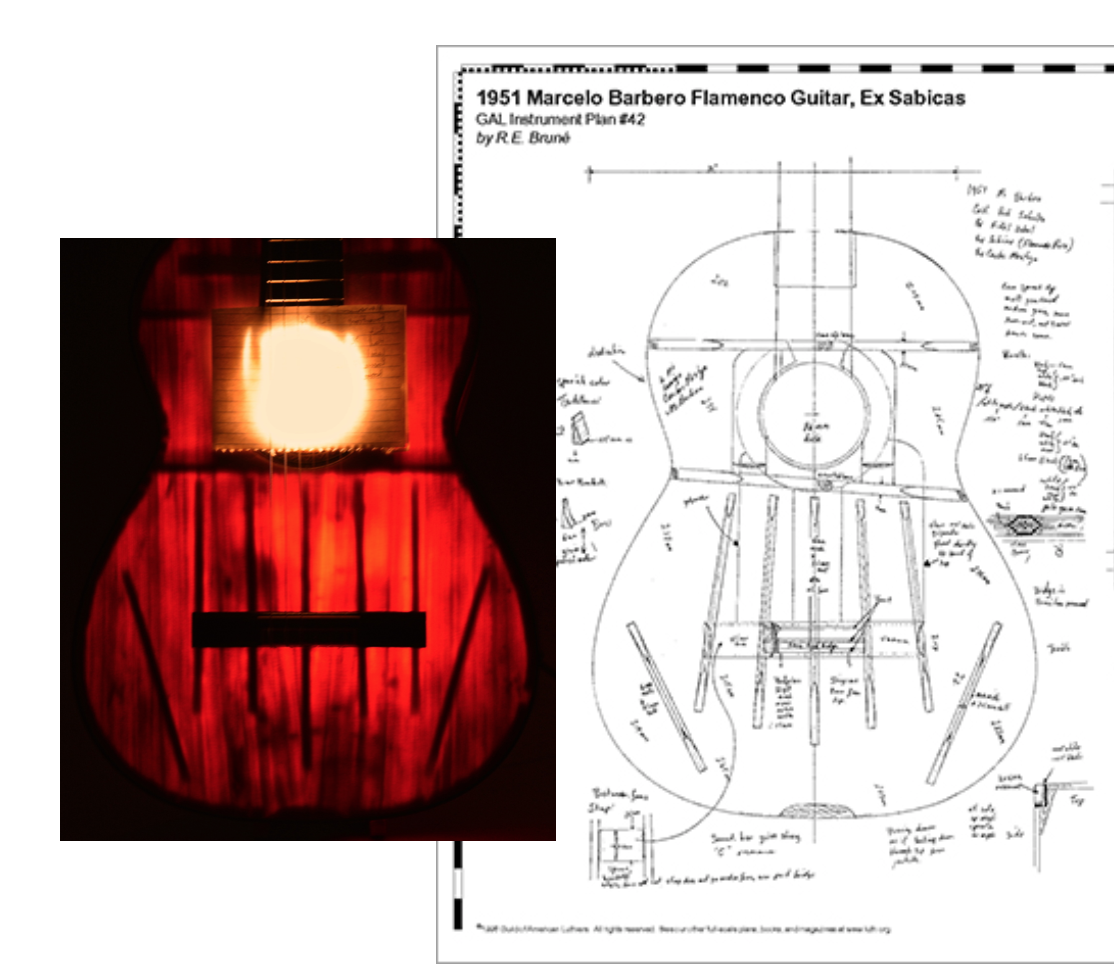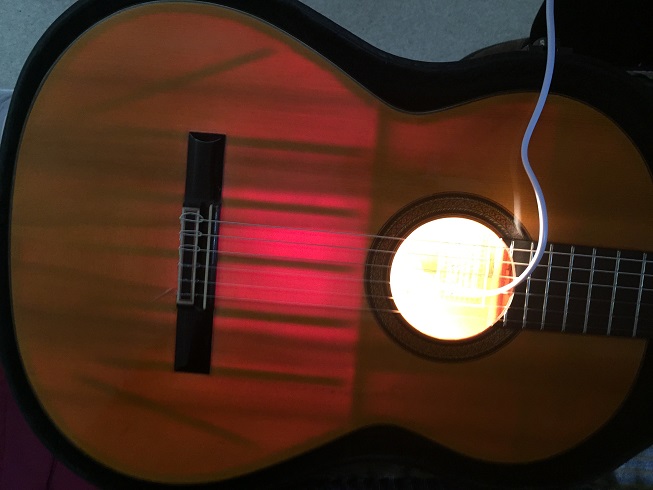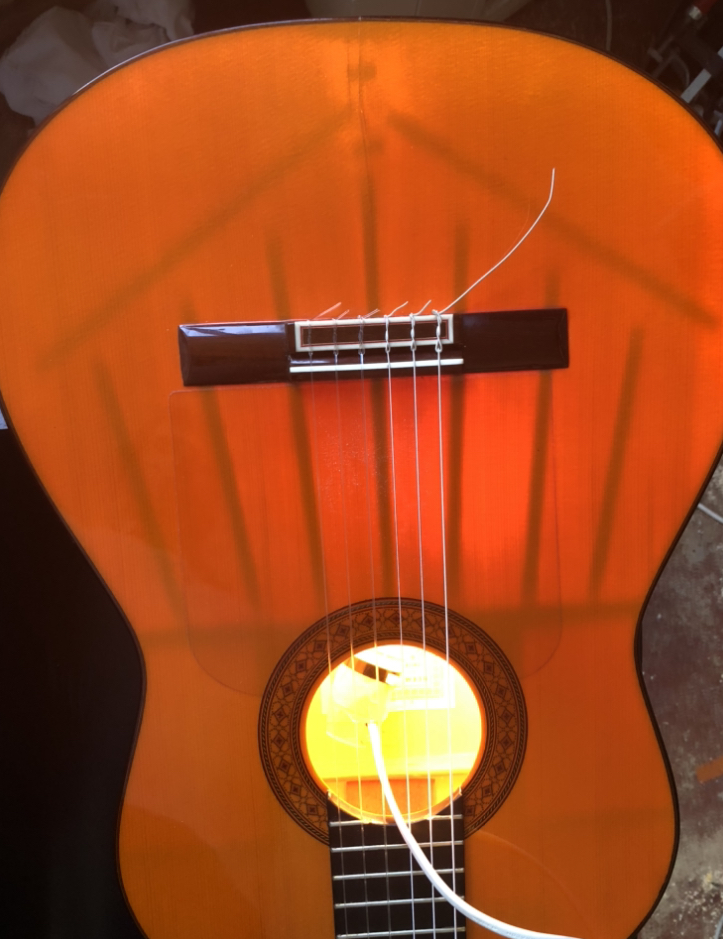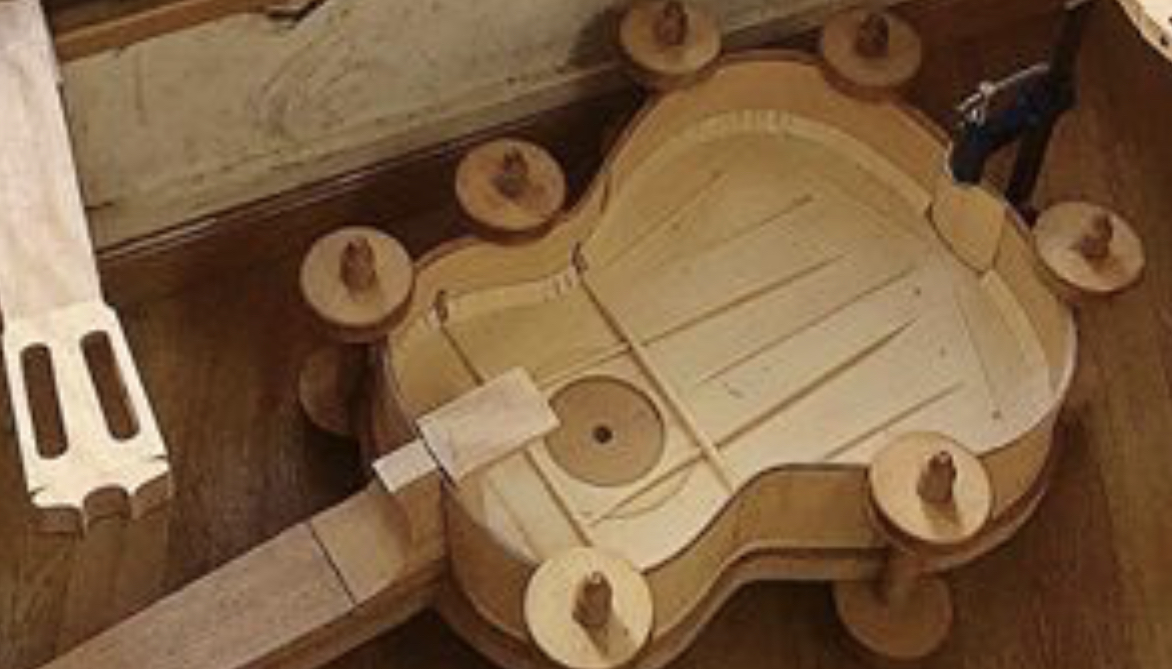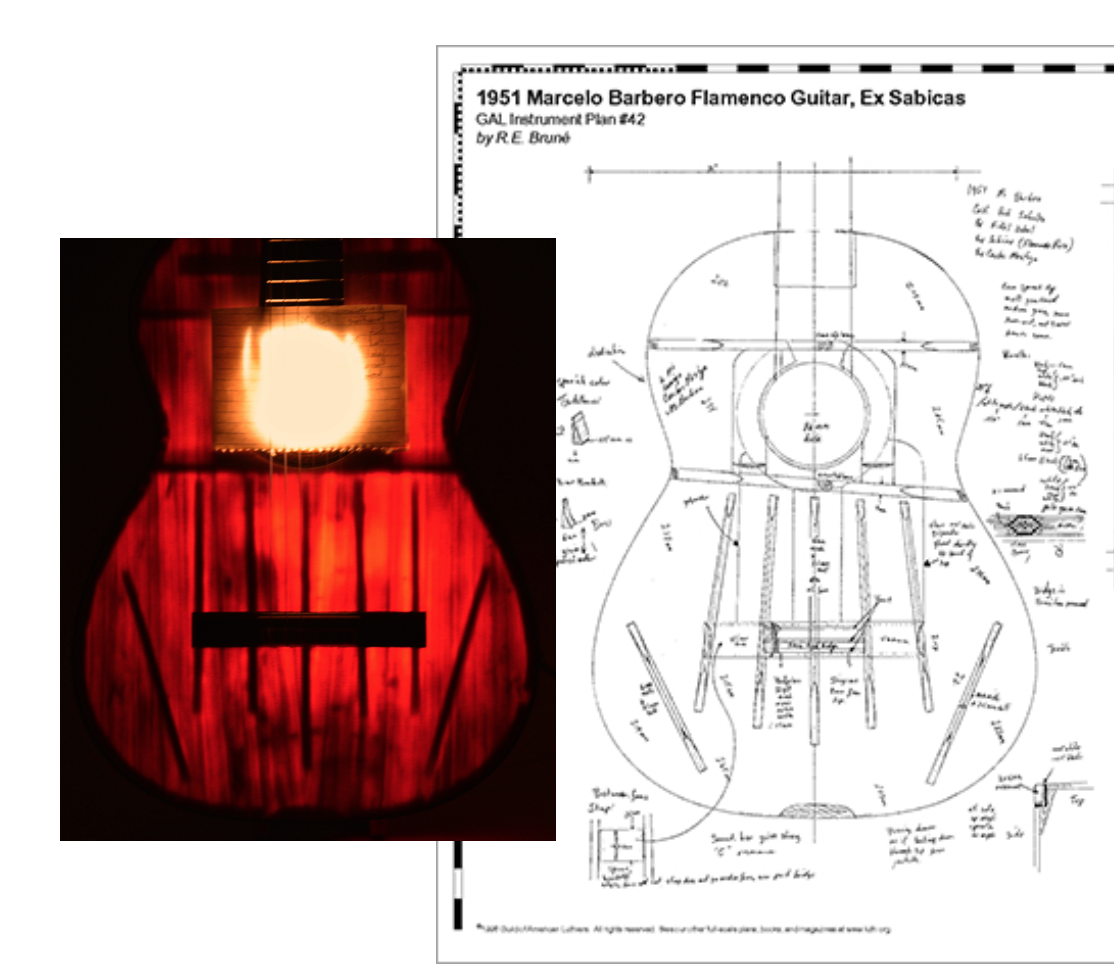|
Echi -> RE: Paco de Lucia 1968 panaderos and Taranta (Sep. 17 2019 10:11:44)
|
quote:
Are the top thicknesses of these older Condes thinner than on the modern Filipe V bracing pattern?
Yes they are. The 2 struts more are there to support a thinner top.
BTW, if you take a careful look a the 5 central fan struts, you will notice that they are not parallel but spread with the same angle used in the bracing of Barbero (and Santos before him); as said, the 2 external struts support the thinner top at the top periphery.
Top is slightly domed (2,5 mm probably) with a drop behind the bridge). The back is domed just slightly: overall the look is flattish though. Solid linings are used and thin and tall bracing instead of the Faustino beefy ones.
Guitar making is just extremely clean and precise, the clearest evidence that the guitar was outsourced and not made by Faustino.
Regarding the doming, in my view the point is almost always how parallel is the line of the upper binding to the neck angle.
The 80ies model has a quite large plantilla, is much more resonant, with a lot of overtones and sustain. The guitar is low pitched but very projecting.
It’s not an easy guitar though: the top breaks more easily for rasgueados and the "pulsacion" is quite on the soft side.
A different beast both from the Conde of the sixties and those of the Felipe V era.
The Condes made in calle Felipe V are a different project, merging elements of the sixties Conde and elements of the eighties Conde.
They came back to the stiff top with the result of a more rigid box and“solid” tone and a more focused note.
A clear step in the evolution to the Felipe V model can be seen the guitars made at the end of the eighties (for the 3 shops):
Here is a picture of a top of the time (in this case I took the picture of a 1988 Conde from the website of Malia luthier, but years ago I had for awhile a similar Conde, clearly made by Ricardo Sanchis with the same pattern).
At this time they introduced the 2 long bars protruding beyond the transverse bar but the top was still thin.
Later on in the nineties The Conde of Felipe V kept the feature of the long bars together with the stiff top.
In this case they used a parallel “fan” bracing with 2 closing bars.
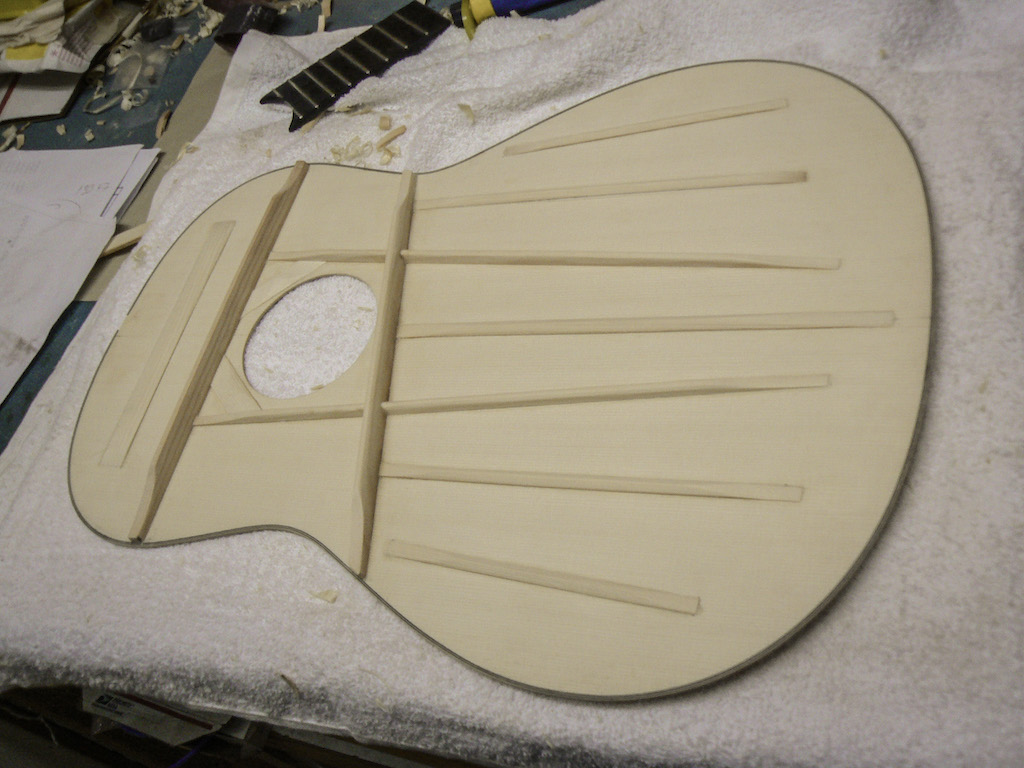
Images are resized automatically to a maximum width of 800px
|
|
|
|
